Wittenborg Online News!
Activity Aligned with UN’s Sustainable Development Goals
End-of-Year Project Week Inspires Students to Fight Poverty
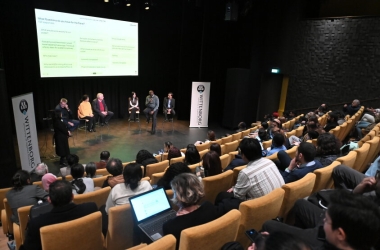
Activity Aligned with UN’s Sustainable Development Goals
In line with the United Nations’ Sustainable Development Goal #1 (‘No Poverty’),
Wittenborg conducted its traditional end-of-year Project Week between
18 and 20 December. Involving approximately 250 foundation, bachelor’s
and master’s students, the activity had the goal of raising awareness
about the inequalities in the world and encouraging participants to
think about solutions to eradicate extreme poverty. The Project Week’s
theme was voted on by both students and staff earlier in the year, and
will be Wittenborg’s Theme of the Academic Year 2023-2024.
The activity’s kick-off took place at Apeldoorn’s famous Orpheus Theatre, opened by a recorded speech by local alderperson (wethouder) Sunita Biharie.
In the video, Biharie explained the municipality’s plan, consisting of
24 actions to tackle poverty, and also stressed the physical and mental
effects of poverty on people, as well as how it affects their
relationships. Furthermore, she highlighted that this marks the city’s
first adoption of such an initiative, adding that politicians can play a
crucial role in fighting poverty, expressing her concerns that this may
not be a priority for the upcoming Dutch national government.
Next, Wittenborg’s president Peter Birdsall and Head of Education Development and Quality Management Kriszta Kaspers-Rostás
delivered a general introduction to the Project Week, outlining it for
the students and explaining what they were expected to achieve.
The event also included talks by Windesheim University of Applied Sciences degree programme director Lineke Stobbe, Wittenborg’s former vice president of Academic Affairs and currently AACSB’s vice president Ron Tuninga and Wittenborg lecturer Cha-Hsuan Liu, in which they shared different perspectives on the topic. Finally, a discussion panel composed of various Wittenborg scholars closed the activities of the day.
On Tuesday, 19 December, the activities were conducted at the Spoorstraat building. The day featured as guest speakers Bureau Geldzicht and Rabobank member Henk Veldman, the chairman of Sant’Egidio Apeldoorn Ronald Dashorst, and Erik Stijnman, chief of staff at the Dutch Ministry of Defence’s Istar Command initiative.
According
to Wittenborg Head of Education Development and Quality Management
Kriszta Kaspers-Rostás, by exposing students to a vast array of
perspectives on how to combat poverty, the activity was intended to show
that economics can be used to make people’s lives better.
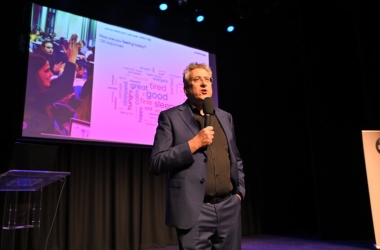
Windesheim
University of Applied Sciences degree programme director Lineke Stobbe,
guest speaker during the activity, pointed out that poverty is a
complex phenomenon, and needs to be addressed accordingly. In her view,
the UN’s SDGs must be approached as a whole, as they are interconnected.
“Education, and especially international education, is very important. These students come from so many different countries, and they already have a lot of knowledge and experience regarding these topics. Let’s tap into that and encourage them to think about these issues instead of just teaching them the ways we think are the best to solve these problems.”
Hands-on work
Divided into groups of five, students were required to develop their own ideas to combat poverty in a specific city or region through businesses or other organisations. The projects were detailed in posters, which had to fulfil a number of criteria, such as explaining the idea clearly and in a creative way, as well as presenting feasible solutions based on sound research.
On the final day of the Project Week, the posters were hung on the
walls of Wittenborg’s Spoorstraat building for the jury to assess. Each
group chose at least one representative to stand next to its poster and
present the idea to the judges and other visitors, and participants
could take turns to do that.
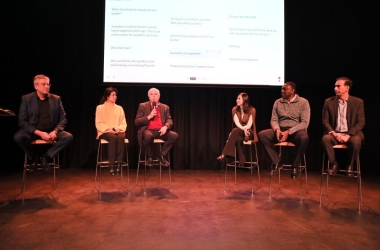
In the evening, during the Christmas Drinks event held at NExTT Drinks & Soulfood in Apeldoorn, the jury announced the three best projects, awarding the groups behind them. Each team member of the first, second and third placed groups was respectively awarded with 100-Euro, 50-Euro and 25-Euro Bol.com vouchers.
Iranian student Amirali Hosseinzadeh, studying for an MBA degree in Entrepreneurship & Innovation, was part of the team that won the first place among the master’s programmes. His group’s project focused on developing a sustainable and free healthcare solution for the inhabitants of an Indian province.
“I really like group projects like this because as a business student, you will need to work in groups in the future, so that’s good practice. On top of that, I was able to develop useful skills such as using computer programmes and websites to create designs. It is always great to work with other people because everyone knows something that you don’t know, and you can learn from them,” he said.
Nigerian bachelor’s student Joy Aigbojie, specialising in Information Management, described the project week as an eye-opener, adding that it opened her mind to the possibility of becoming a social entrepreneur.
“You can, for example,
mobilise the youth to empower them with vocational skills. And then,
when they become independent, they know they can do something with their
hands. I think that that change must start from the individual, from
me, from all of us. This assignment made me reflect on what I can do to
help the community. It’s a challenge that I really want to take on,” she
emphasised.
Wittenborg Christmas choir
To celebrate the traditional end-of-year festivities, the December Project Week also marked the official launch of the Wittenborg Christmas Choir. The initiative brought together 10 staff members and students, who had the opportunity to rehearse from 18 to 20 December.
The choir’s first presentation took place at the Christmas Drinks event, on 20 December, and its repertoire included various Christmas carols that also relate to the themes of poverty and charity addressed during the Project Week.
WUP 22/12/2023
by Ulisses Sawczuk
©WUAS Press
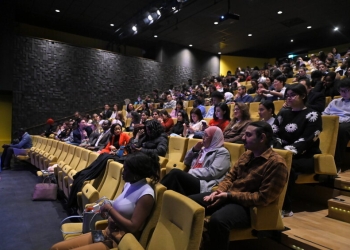
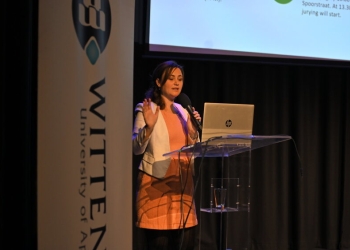
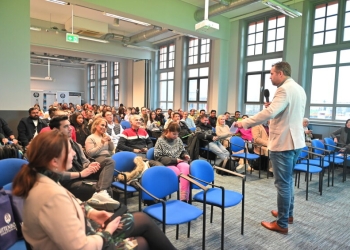
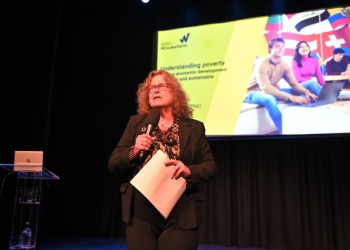
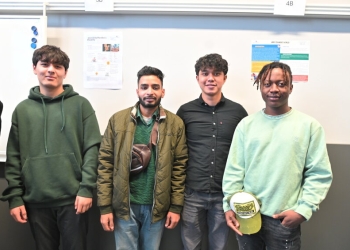
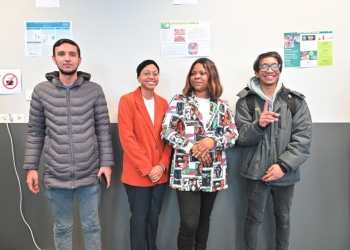
972 words